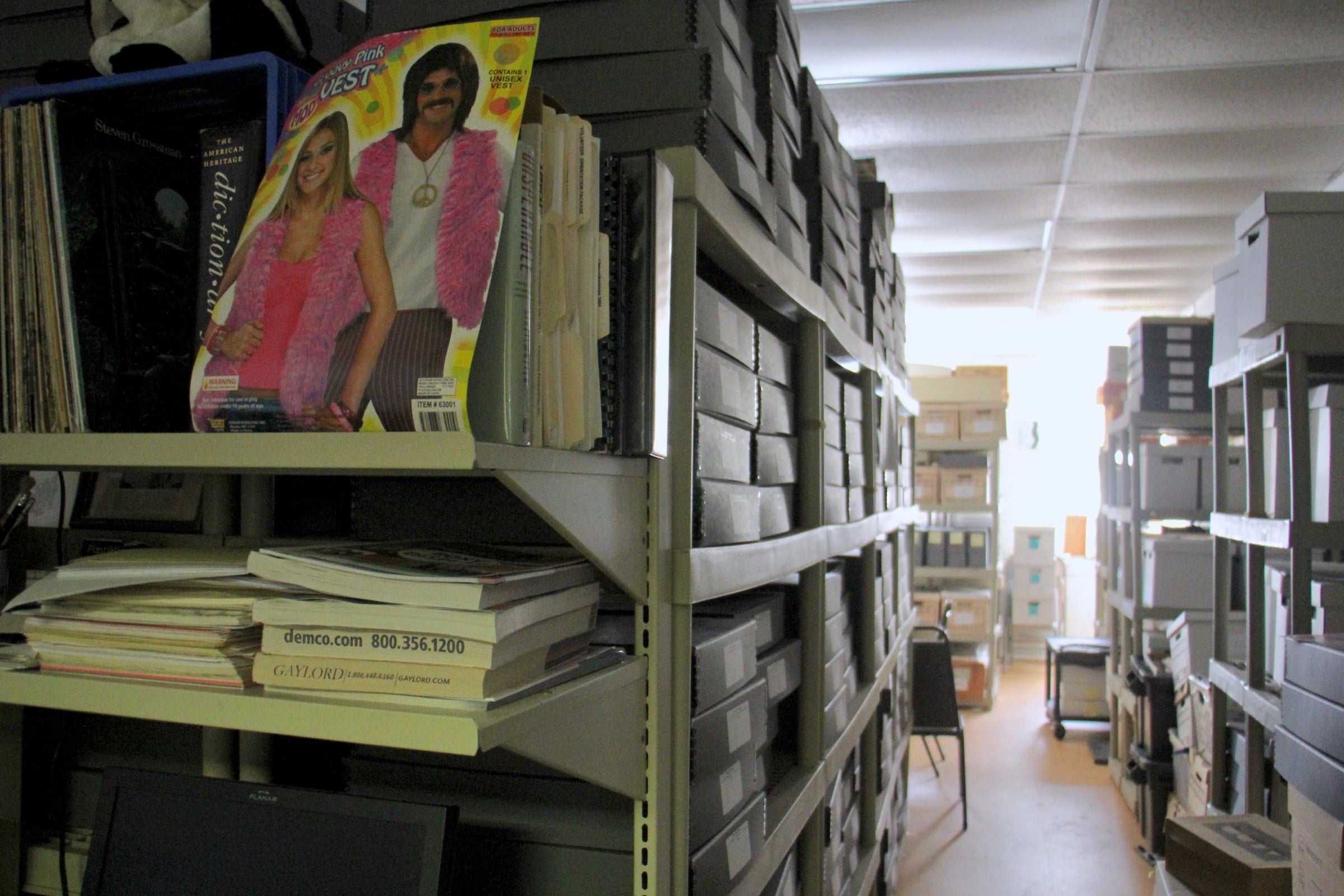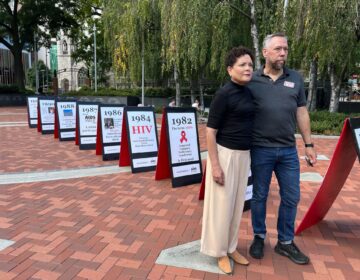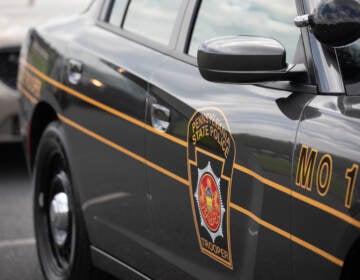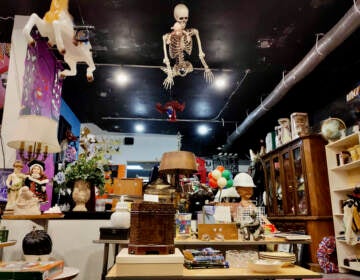LGBT center aims to preserve, expand archive of Philly’s response to AIDS crisis
In the '80s, Philadelphia’s activists took to the streets and fought for funding to improve care, becoming national leaders in responding to the health crisis.

The SILENCE=DEATH gown worn by activist Dominic Bash stands beside a 2017 poster in the William Way exhibit documenting Philadelphia's decades of AIDS activism. (Emma Lee/WHYY)
When the AIDS epidemic hit in the 1980s, Philadelphia’s activists took to the streets and fought for funding to improve health care, becoming national leaders in responding to a terrifying health crisis that killed so many in the LGBT community.
To preserve that history, the William Way LGBT Community Center assembled artifacts from that era into an exhibit called “Still Fighting for Our Lives” — a reference both to their 1980s rallying cry, “Fighting for Our Lives,” and recent threats to LGBT rights by conservative leaders.
While the exhibit will be open to the public through the end of the year, the center now is raising money to digitize it, hunt down more artifacts to expand it, and interview 12 early responders to add their oral histories to the archive.
Organizers aim to raise $20,000 during the monthlong “Archiving AIDS” fundraiser, which launched Friday on World AIDS Day. It’s the center’s first-ever effort to crowdfund online for a specific project.

“This is more than just an exhibit. It’s actually a lesson for how to resist and how to organize in these difficult times,” said Chris Bartlett, the center’s executive director. ”We need the skills that we learned in fighting the AIDS epidemic for many political battles to come.
“So the reason that it’s important for us to document this history is that we can teach a whole new generation of activists, a whole new generation of students, what it looked like for tremendously courageous people to step up and make a difference.”
The center already has one of the nation’s largest LGBT archives in the country.
Its John J. Wilcox Jr. Archive, which started when the center opened 42 years ago, contains everything from photographs of Philly’s LGBT community that date back nearly five decades, to signs from bars where early LGBT activists met, to costumes worn by the region’s most famous drag performers. The center also is in the final year of a three-year, $330,000 grant from the William Penn Foundation to double and preserve the archive and expand its reading room.

“When you’re trying to understand that early history, this is the place to come, and we welcome Philadelphians to come in and see the archives and perhaps discover their own story within it,” said Bartlett of the archives, which are inside the center at 1315 Spruce St. in Center City Philadelphia.
Philly’s history in confronting the AIDS crisis is a crucial part of that history, Bartlett added.
“Philadelphia was one of the leaders in the AIDS activist movement nationally. We have a very active ACT-UP chapter, and many key organizations that became models for the nation,” Bartlett said.
Philly became one of the first cities to create a needle-exchange program to stem the spread of HIV, to distribute condoms and boost AIDS awareness and health care in prisons, and to devise standards of health care for those living with HIV or AIDS, he added.
And while HIV/AIDS service organizations gained a reputation for representing predominantly white communities — despite the high risk and incidence rate in communities of color — Philly was home to the nation’s first AIDS service organization focusing on black people with HIV or AIDS. Blacks Educating Blacks About Sexual Health Issues, or BEBASHI, was founded in the city in 1985.
WHYY is your source for fact-based, in-depth journalism and information. As a nonprofit organization, we rely on financial support from readers like you. Please give today.




